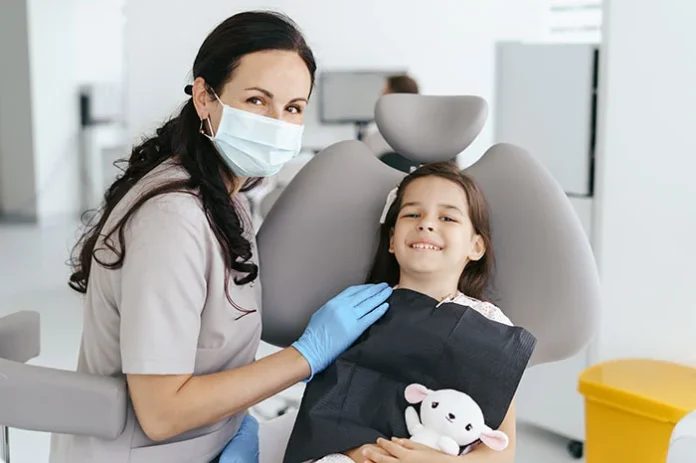Going to a dentist for the first time can be daunting, particularly for an individual who thinks such a visit might cause some form of anxiety and discomfort. To start with, oral care is a necessity if one is seeking any form of service and once more, there are so many vital things to learn to make the process easier. In short, knowledge and preparation reduce oral health risks and discomfort, promoting lifelong well-being.
As you schedule, you should choose a reputable clinic. Some clinics can meet your needs in different fields, such as general dentistry, orthodontics, and more. Dentistes du Vieux Ste-Rose is one of them. They guarantee the best preventive care, restorative treatments, and personalized solutions for each client. Visits at least once every six months ensure the upkeep of your oral health. In these visits, your dentist can monitor your progress, identify potential issues that should be checked regularly, and carry out proactive care.
Neglecting dental appointments might lead to more complicated conditions. To ensure a healthy smile and overall health, you need regular visits to the dentist. Book your dental visit today and take that big leap towards wholesome wellness.
Preparing for Your First Dental Visit
In most of the cases, people overlook and take for granted their oral health requirements. But the right steps can ensure your first dental visit goes as smoothly as possible. Being well-informed and prepared before your appointment can make your visit more relaxing and efficient for both, you and the dentist.
Understanding the Importance of Oral Health
Your oral health is vital to general well-being. Healthy, straight teeth and strong gums avoid issues that may include tooth decay, cavities, and gum diseases. Scheduled dental visits enable you to maintain your oral health and identify any issues in the early stages.
You should develop good habits in routine like brushing and flossing. This will remove plaque that may lead to cavities. Your dentist or hygienist will inform you about how to improve your oral health routine.
Be ready for your dental appointment by compiling your dental and medical history that you are going to present to your dentist. Don’t forget to bring this information on the day of the dental appointment along with your dental insurance cards.
Assess Your Dental Insurance Plans
Understanding your dental insurance would be a big deal to utilize all the benefits you can achieve concerning oral health, preventing surprise expenses. Always read the fine print: know what’s covered and how and under what conditions, what procedures are included, and which have limits or exclusions. It will be an overall review that will let you know whether routine cleanings and check-ups are covered, or whether pre-authorization is necessary, then other benefits, including coverage for orthodontic or oral surgery.
This way, you would not fear having scheduled treatments, make use of preventive care, and enjoy proper oral health. Moreover, you avoid costly surprises and ensure you get the best care possible. By reviewing your policy, you make the most out of your dental insurance coverage. This knowledge also makes your partnership with your dentist tighter and helps in giving personalized care to you, which is tailored to your needs.
Schedule Appointments in Advance
Book your preferred date as it offers numerous benefits. A very simple yet efficient way to avoid hassles and stress due to last-minute scurrying is to book the appointment prior. Planning ahead means that you can pick a date and time that works best for you, and this will allow the clinic to prepare well for you, thus reducing wait times. Once you book an appointment, everything will be fine and your oral health will be of prime importance.
What to Expect During Your Appointment
Being a new patient, you would probably go through a detailed analysis on the first visit. They will check out your dental history and what kind of issues you have. In this way, they work according to your requirements.
You may even require X-rays for clearer images of your teeth and the gum surrounding it. This can help your dentist to spot problems that may not appear visually. Be prepared for a professional cleaning that will remove plaque and tartar accumulation.
As part of your checkup, the dentist will also perform an oral cancer screening. This is for the early detection of any abnormal tissues. Lastly, you could receive a fluoride treatment that strengthens your teeth and protects them against decay.
Dealing With Dental Anxiety
Do not feel anxious about your first dental visit. This is very common. Just inform the dental office if you have fears or concerns. They can usually accommodate you to help make you feel better.
Ask questions regarding the procedures you are going to undergo so that you are aware of what is going to happen during your visit. Knowing about it will help calm down the anxiety and make it less scary.
A patient may need some support. One can ask a friend or a relative to come along with them. Listening to music or deep breathing exercises can be soothing techniques. You should not hesitate to let the dentist know about your apprehensions.
Also Read: Medical Advancements
Comprehensive Dental Evaluation and Treatment
A thorough dental evaluation with treatment planning is a part of your first visit. This usually includes an initial examination, tailored treatment planning, and education on preventive care to ensure prolonged dental health.
Initial Examination and X-Rays
During your first visit, you will undergo a comprehensive evaluation of your teeth and gums to look for decay, cavities, and gum disease. In some cases, you may need dental X-rays, especially if there is an issue being suspected with your teeth. Your dentist may refer some of this information to a dental assistant who will be taking the X-rays. These X-rays help to find out impacted teeth and bone loss in the jaw.
Furthermore, your blood pressure might also be taken to check whether you have conditions, including hypertension, that could impact your course of treatment. The objective of this initial examination is to obtain all the information required to provide you with holistic, in-depth oral healthcare.
Creating a Personalized Treatment Plan
Following the first consultation, the dentist would develop a customized treatment plan based on individual needs. It would highlight specific immediate problems, such as cavities or gum disease, and propose dental procedures, including cleaning, fillings, or restorations.
The treatment plan will be organized in a way that helps you to enhance your oral health. Steps to monitor and treat the conditions that classify under periodontal disease could easily be included in it. The plan may consist of scheduling check-ups to ensure continued maintenance of dental health, and modifications could be made according to your needs.
Proactive Care and Knowledge for Long-Term Dental Health
Preventive care keeps healthy teeth and gums for a lifetime. Your dentist will inform you of the best practices of oral hygiene, brushing, flossing, and possible application of fluoride treatments. One learns the importance of routine cleaning when needed to prevent plaque buildup and decay.
Apart from giving you an initial checkup, the dentist can also give you advice concerning diet and other types of lifestyle habits that can affect your oral health. A good dental practice and preventive measures advice by a dentist will minimize your chance of having cavities, gum disease, and other problems with your oral cavity. Such activities as regular visits and good oral hygiene habits are necessary to preserve your smile.
Conclusion
In many cases, your first visit to a dentist might be very simple and painless. It’s usually very important to try to find a time for your first appointment at about one year of age, to safeguard your dental health. Periodical check-ups can ensure proper oral hygiene; therefore, it will prevent future problems. Make sure you can find a dentist that you’re comfortable with so you can begin building trust for many years.



